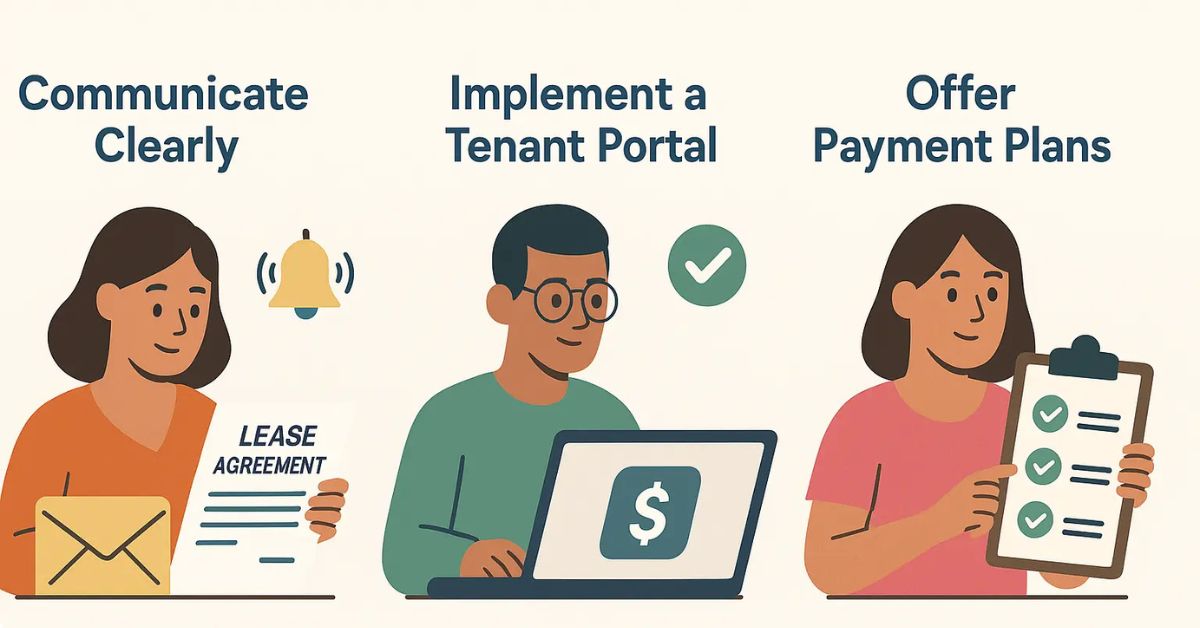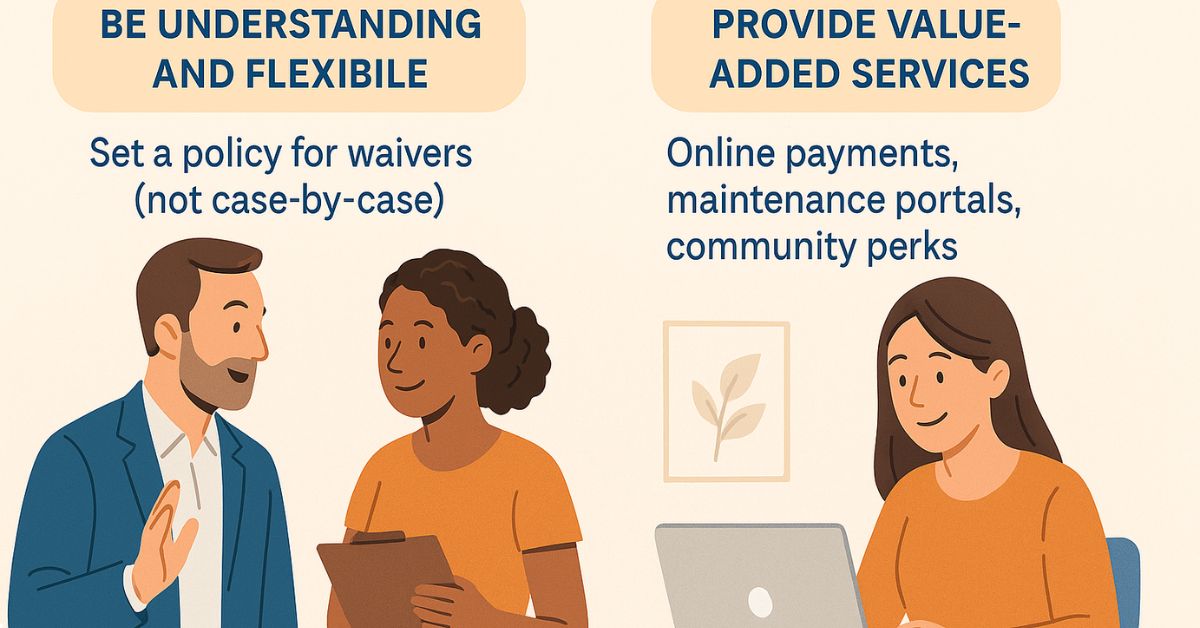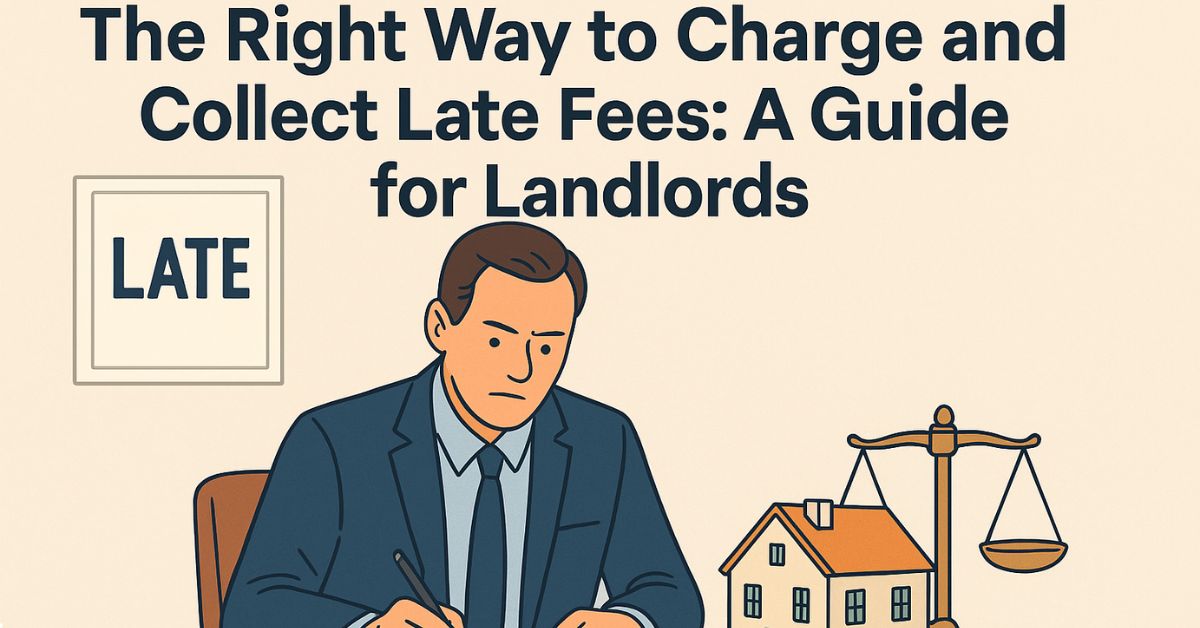Managing rental properties can be both rewarding and challenging, especially when it comes to ensuring timely rent payments. Late payments can disrupt your cash flow and complicate rental income management. As a landlord, it's essential to establish a clear, fair, and legally compliant system for charging and collecting late fees. This guide will walk you through the best practices for handling late fees, ensuring both compliance with local laws and maintaining positive tenant relationships.
Understanding Late Fees and Their Importance
Tenant late fees are charges imposed on tenants who fail to pay rent by the agreed-upon due date. They serve as a deterrent against late payments and help compensate landlords for the inconvenience and potential financial strain of delayed rent. Without such fees, tenants might not feel the urgency to prioritize rent payments, leading to frequent delays that can jeopardize the landlord's financial planning. Therefore, late fees are not merely punitive but a necessary measure to ensure the smooth operation of rental management.
However, it's crucial to approach late fee collection with a balanced perspective, ensuring it aligns with both legal standards and ethical practices. While it is essential to uphold the terms of the lease, landlords must also consider the personal circumstances of tenants. Understanding the reasons behind a tenant's late payment can lead to more empathetic and effective management, transforming potential conflicts into opportunities for building stronger tenant relationships.
Legal Considerations
Before implementing late fees, familiarize yourself with the local laws and regulations governing rental agreements in your area. In Atlanta, for example, landlords must adhere to specific guidelines that dictate the amount and application of late fees. While Georgia does not have any sort of statutory limit on late fees, most judges will only allow something between 10-15% at a max. Essentially, late fees should be reasonable and clearly outlined in the rental agreement.
Failing to comply with local laws and guidelines can lead to disputes or legal challenges, undermining your efforts to maintain a hassle-free property management experience. In addition to potential legal repercussions, non-compliance can damage your reputation as a landlord, making it harder to attract and retain reliable tenants. Therefore, conducting thorough research or consulting with a legal expert to ensure adherence to the law is a prudent step in establishing a late fee policy.
Setting Appropriate Late Fees
Determining the right amount for late fees requires careful consideration. You want to set a fee that is significant enough to encourage timely payments but not so high that it becomes punitive or legally questionable. A common practice is to charge a percentage of the monthly rent, often ranging from 5% to 15%. This percentage should reflect a balance between deterrence and fairness, ensuring that it is substantial enough to prevent habitual lateness without imposing undue hardship on tenants.
Ensure that the fee structure is explicitly detailed in the lease agreement, including the grace period allowed before late fees are applied (if any). Transparency is key to avoiding misunderstandings and maintaining trust with your tenants. By providing a clear explanation of the late fee policy during the lease signing process, you set the stage for open communication and mutual respect, minimizing the risk of disputes later.
Effective Strategies for Collecting Late Fees
Once you've established a fair late fee policy, the next step is implementing a strategy for collecting these fees effectively. Here are some practical approaches:

Communicate Clearly
Communication is essential in property management. At the start of the lease, make sure tenants understand the terms regarding rent payments and late fees. It is beneficial to include this information in a tenant welcome packet or handbook, which tenants can reference throughout their lease term. Regular reminders, whether through email or a tenant portal, can help reinforce these terms and encourage timely payments.
In addition to initial communication, maintaining an open line of dialogue with tenants is crucial. Encourage tenants to reach out if they anticipate difficulties in meeting payment deadlines. This proactive approach can prevent issues from escalating and demonstrates your willingness to collaborate on finding solutions, thereby fostering a cooperative landlord-tenant relationship.
Implement a Tenant Portal
Leveraging technology can simplify late fee collection. A tenant portal allows tenants to view their payment history, upcoming due dates, and any accrued late fees. This transparency can reduce disputes and enhance rental income management by providing tenants with easy access to their financial obligations. Additionally, a tenant portal can offer multiple payment options, such as credit card or bank transfer, making it more convenient for tenants to pay on time.
Incorporating automated reminders through the portal can further reduce late payments. Tenants can receive notifications before rent is due, as well as alerts for any outstanding payments, ensuring that due dates are not overlooked. This not only aids in timely collections but also positions you as a tech-savvy landlord who prioritizes tenant convenience.
Offer Payment Plans
Sometimes tenants face genuine financial difficulties. Offering a temporary payment plan can be a compassionate and effective way to collect overdue rent and late fees. This approach not only helps maintain tenant satisfaction but also demonstrates your commitment to finding mutually beneficial solutions. By working with tenants during challenging times, you build loyalty and goodwill, which can lead to long-term tenancy and reduced turnover.
Moreover, offering payment plans can be a strategic move in preserving cash flow. Rather than risking prolonged non-payment, a structured plan allows for partial, con sistent payments, ensuring that some income continues to flow while the tenant works through their financial troubles. This flexibility can be invaluable in maintaining a stable rental income over time. However, be sure not to be a pushover. Some tenants will take advantage, so you want to be firm in your expectations. If someone wants a payment plan, a good practice is to charge a premium over what they would have paid if they had paid on time. For example, if the rent is normally $1,500, and they want to pay it over three months to get back on track (in addition to the normal rent those next three months), you might charge them $550/mo for those three months (an extra $150 total). This displays your willingness to be flexible and understanding, while still sending the message that you expect to be paid on time.
Maintaining Tenant Satisfaction
While it's important to enforce late fee policies, maintaining tenant satisfaction should also be a priority. Happy tenants are more likely to renew their leases, reducing turnover and ensuring a steady rental income. Here's how you can balance firm fee enforcement with tenant satisfaction:

Be Understanding and Flexible
Life can be unpredictable, and even the most reliable tenants may encounter financial setbacks. By demonstrating understanding and flexibility, you can foster a positive landlord-tenant relationship. Consider setting a policy for circumstances under which you would waive a late fee. For example, if there was a death in the family. DO NOT make these decisions on a case-by-case basis, though. Have a written policy so you do not get accused of favoritism or violating fair housing laws.
Flexibility also involves being receptive to tenant feedback regarding payment policies. Regularly soliciting tenant input and adjusting policies to better suit their needs can enhance their rental experience and reflect your commitment to providing a supportive living environment. Such adaptability can be a significant differentiator in a competitive rental market. For example, Revolution began providing flexible payment arrangements for our residents after hearing feedback that this would be a desirable option. The tenant pays slightly higher rent, but they get more time in the month before a late fee is charged.
Provide Value-Added Services
Enhancing tenant satisfaction can also involve offering value-added services, such as online payment options, maintenance request portals, or community events. These services can improve the overall rental experience and encourage tenants to prioritize their rent payments. By creating a sense of community and offering conveniences that enhance daily living, you increase tenant engagement and satisfaction.
Additionally, offering amenities or services that cater to tenant lifestyles, such as fitness centers or co-working spaces, can further enrich their living experience. These extras not only attract new tenants but also incentivize existing ones to renew their leases, contributing to stable occupancy rates and consistent rental income.
Late Fee Collection for Landlords
Collecting late fees isn’t always as simple as sending a notice. Missed payments, inconsistent enforcement, and legal nuances can all make it difficult to ensure late fees are actually paid. If handled poorly, landlords risk waiving their right to collect — and that can quickly impact rental income.
This is where professional property management makes all the difference. A skilled property manager not only enforces lease terms consistently but also applies payments correctly, tracks balances, and handles communication with tenants. That means no more awkward conversations, missed fees, or worries about unintentionally waiving your rights. With expert support, you can rest assured that late fees are being handled by the book — and you’re protected when it matters most.
Conclusion
Charging and collecting late fees is an integral part of rental income management. By establishing a clear, fair, and legally compliant late fee policy, you can protect your cash flow and maintain positive tenant relationships. Remember, effective communication, transparency, and a willingness to accommodate genuine tenant needs can transform property management into a profitable and stress-free experience.
By following the strategies outlined in this guide, you'll be well-equipped to handle late fee collection with confidence, ensuring compliance with local laws and enhancing tenant satisfaction.


